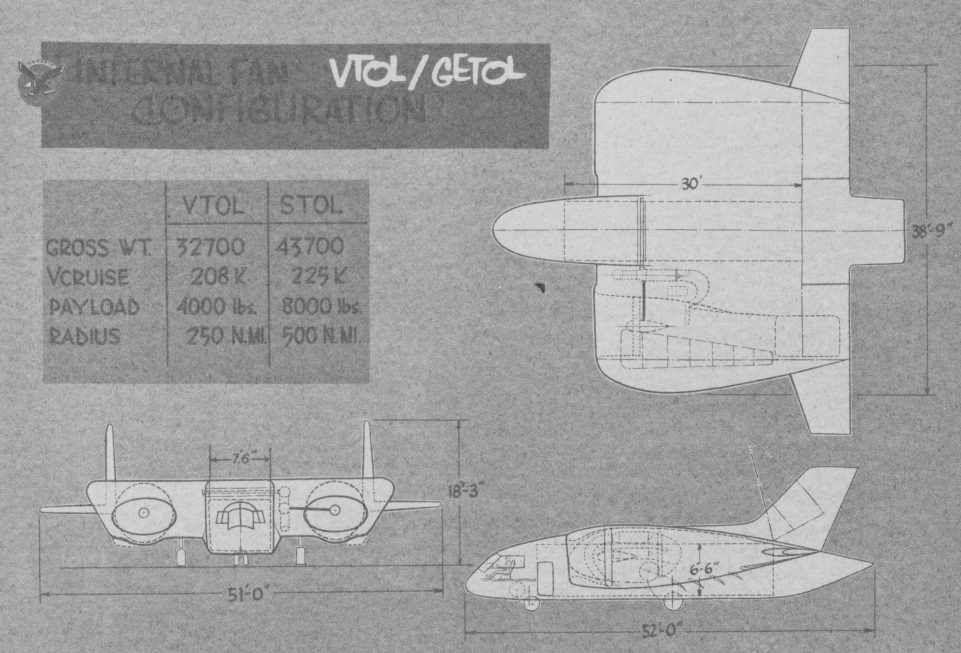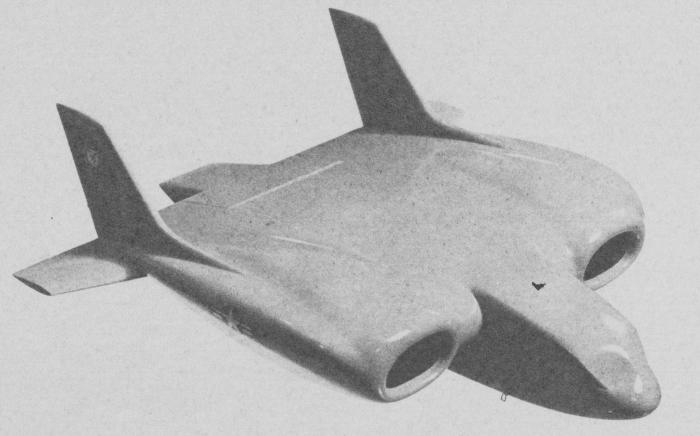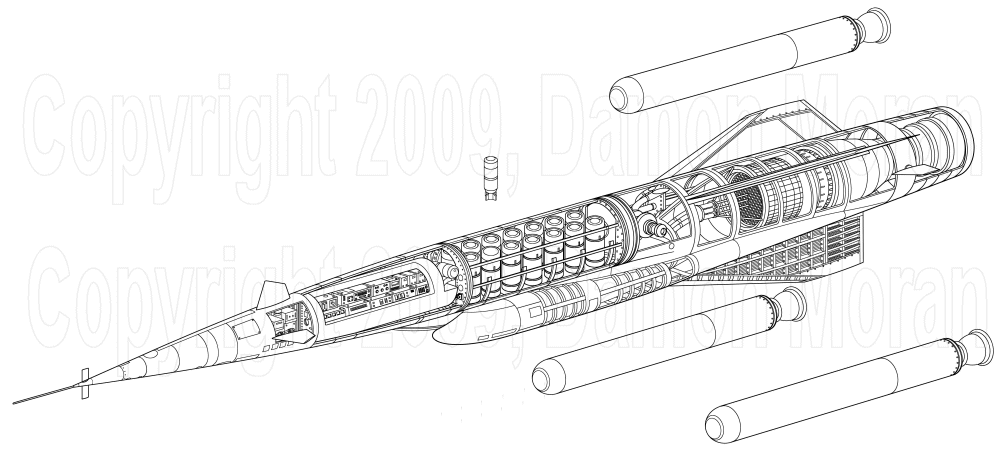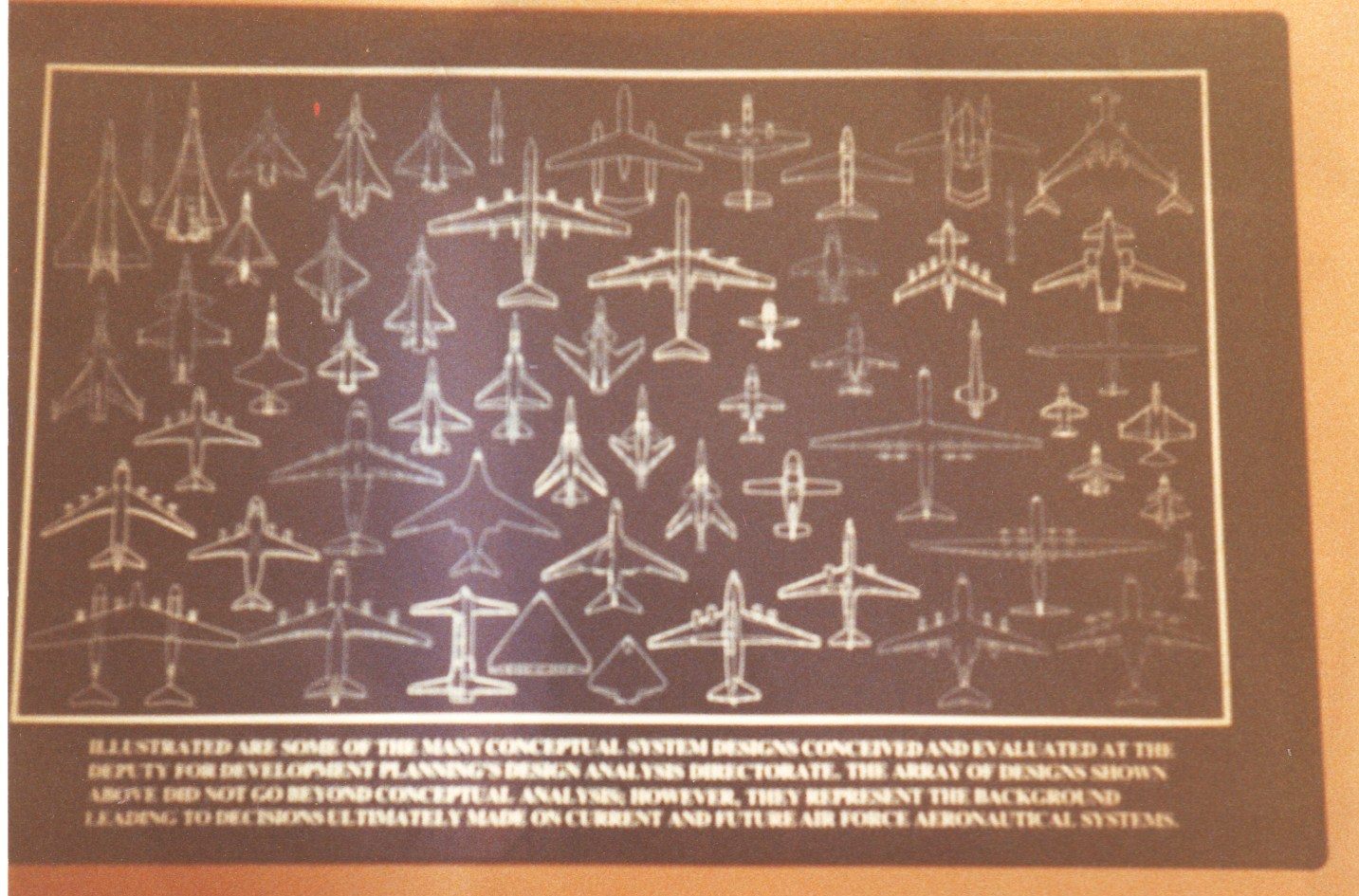Described in a 1963 presentation is the Convair PD-104 (PD=”Preliminary Design”) Ground Effect Take Off and Landing (GETOL) assault transport. This was one of a myriad of 1960’s concepts for VTOL or STOL aircraft. This time, the jet engines were used to create a ground effect lift, similar to a hovercraft. The idea was that by generating a low-velocity vertical jet close to the ground, a “cushion” of tapped air would be formed and the effective lift at extremely low altitudes – a few feet – would be very high. To do this, Convair had anumber of designs, most of which featured fat, low aspect ratio wings with turbofans, turboprops, turbojets, whatever, ducted into a plenum; there were also designs featuring fans embedded in the wing similar to the fans in the Ryan XV-5A wings. The design shown here was one of the baseline concepts, and if there is out there a real-world assault transport design that looks more like it belongs next to a squadron of United States Colonial Marine UD-4L dropships on their way down to unload some nuclear-tipped infantry whoopass on some backwoods aliens, I’ve yet to see it.
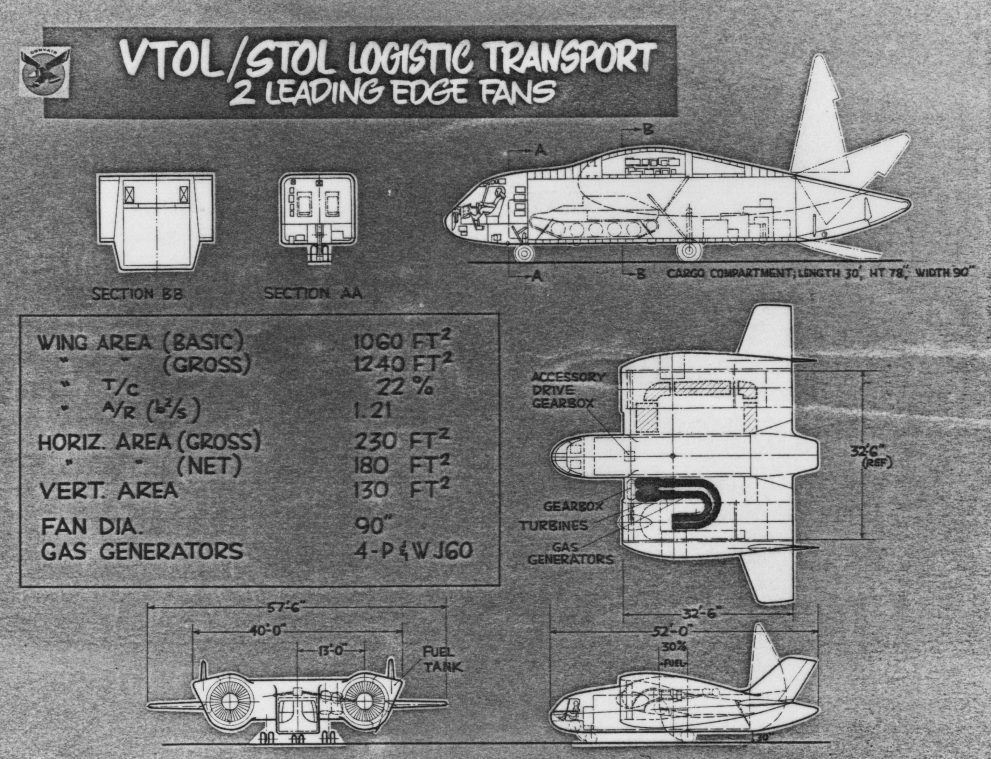
As with essentially all other 1960’s American VTOL concepts, the GETOL vanished like a fart in the wind. The GETOL designs seem to have been reasonable, but suffered from the fact that the lift the aircraft could generate varied substantially over a very small range of altitudes. If you are dropping like a stone at 40 feet altitude, it’s small comfort if you will double or triple your lift at 10 feet altitude. Even if your clear-air thrust to weight ratio is comfortably higher than one, meaning your hover abilities are good, those last few feet are going to be rough as your effective lift force wanders all over the dial.
Another version:
